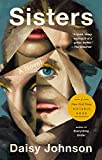Wednesday, December 28, 2022
THE LYING LIFE OF ADULTS by Elena Ferrante
Wednesday, December 21, 2022
PIRANESI by Susanna Clarke
Piranesi is a sweet and innocent young man who inhabits a world of fifteen people, thirteen of whom are dead. The only other living person he has ever seen is an older man whom he calls simply The Other and with whom he meets for an hour twice a week. During his waking hours, Piranesi wanders the many—perhaps infinite—vestibules and staircases of the huge structure that constitute his entire world, which The Other calls the Labyrinth. Piranesi communes with birds, does not appear to have any concept of loneliness, and survives by burning dried seaweed and eating fish that float in with the massive tides that periodically, and quite violently, flood the lower floors. The Other, however, obviously has other resources for food and clothing not available to Piranesi, who is so naïve that he doesn’t even question the source of The Other’s bounty. When another living human appears in the Labyrinth, Piranesi begins to reevaluate everything that he believes to be true. This disruption is particularly striking because the author has done such a remarkable job of creating a calm and serene atmosphere up to this point; Piranesi’s contentment feels perfectly natural. When cracks begin to form in his perception of reality, the novel really picks up speed. I don’t read many fantasy novels and even fewer that I actually like. This is a notable exception.
Wednesday, December 14, 2022
THE KING AT THE EDGE OF THE WORLD by Arthur Phillips
Sunday, December 11, 2022
PRAGUE by Arthur Phillips
Wednesday, December 7, 2022
SMALL THINGS LIKE THESE by Claire Keegan
Why are so many atrocities committed in the name of religion? I was not familiar with the Irish Magdalene Laundries until I read this book, and I still can’t believe they existed until the 1990s. In this spare but heartrending novel, Bill Furlong, an Irish businessman, sees the Laundries’ child abuse up-close-and-personal when he discovers a girl freezing in the local convent’s coal shed. Shocked and dismayed and uncertain how to respond, he goes on about his work, tortured by what he has witnessed. He learns that his fellow villagers, including his wife, insist on turning a blind eye, afraid to rock the boat or wage a battle against the Catholic Church or even acknowledge the cruelty that is taking place right under their noses. Many of the young girls who are basically slaves at the convent have been placed there because they became pregnant out of wedlock. Furlong is especially sensitive to their plight, as his mother was an unwed mother herself but escaped a similar fate due to the kindness of her employer. The main question, then, is will he assuage his conscience, or will he stick with the status quo. This book brought to mind Paulette Jiles’ News of the World, which I loved, but this book is more chilling, because these institutions actually existed, as did the apathy that allowed them to endure for centuries.
Wednesday, November 30, 2022
THE OLD DRIFT by Namwali Serpell
Wednesday, November 23, 2022
NAAMAH by Sarah Blake
Wednesday, November 16, 2022
THE LOST BOOK OF ADANA MOREAU by Michael Zapata
Wednesday, November 9, 2022
CODE NAME HÉLÈNE by Ariel Lawhon
Wednesday, November 2, 2022
A BURNING by Megha Majumdar
Wednesday, October 26, 2022
THE HOUSE IS ON FIRE by Rachel Beanland
Wednesday, October 19, 2022
APPLES NEVER FALL by Liane Moriarty
Wednesday, October 12, 2022
AFTERLIFE by Julia Alvarez
Wednesday, October 5, 2022
THE PLOT by Jean Hanff Korelitz
Wednesday, September 28, 2022
HARLEM SHUFFLE by Colson Whitehead
“The manager of the laundromat was a scrawny man in a saggy
undershirt painted with sweat stains.
Launderer, heal thyself.”
I also learned about dorveille, or “dorvay” as Carney likes
to spell it, which is a period of wakefulness between two half-cycles of
sleep. Apparently, centuries ago, people
slept in two shorter shifts rather than in one continuous 8-hour stretch. Makes sense to me, except for the going to
bed at dusk, although during Daylight Saving Time that might work out OK.
Wednesday, September 21, 2022
BLACK LEOPARD, RED WOLF by Marlon James
Wednesday, September 14, 2022
HOW MUCH OF THESE HILLS IS GOLD by C Pam Zhang
Wednesday, September 7, 2022
STILL LIFE by Sarah Winman
Tuesday, August 30, 2022
INTERIOR CHINATOWN by Charles Yu
Tuesday, August 23, 2022
HAPPY & YOU KNOW IT by Laura Hankin
Tuesday, August 16, 2022
SISTERS by Daisy Johnson
Tuesday, August 9, 2022
GILDED MOUNTAIN by Kate Manning
“’Today Bowles made the union an
offer of air and threw in daylight as a bonus.’”
Sylvie enjoys some wordplay of her own, inventing the word
“underdonkey” and adding her own unspoken comment in a conversation with George
on page 359:
“’Hackles!’ He slapped his thigh. ‘You’re a stitch, Sylvie
Pelletier.’
I was a stitch. A dropped stitch, which results in a great
unraveling.”
Speaking of stitches, Sylvie can’t help laughing at George’s jokes, and neither could I. At times this novel feels like a Cinderella story, and I could have done without the hints of future tragedies on the horizon. Sometimes I think authors, including this one, convey a sense of foreboding as a way to soften the blow when the hammer eventually falls. I would prefer to be surprised, especially by bad news. Sylvie herself, however, is what makes this novel special. She occasionally falters in the common sense department, especially when it comes to matters of the heart, but her commitment to justice, particularly for the underdonkey, never wavers. Thank you to Book Club Favorites at Simon & Schuster for the free copy for review.
Tuesday, August 2, 2022
OH WILLIAM! by Elizabeth Strout
Tuesday, July 26, 2022
WRITERS & LOVERS by Lily King
Sunday, July 24, 2022
THE PLEASING HOUR by Lily King
Tuesday, July 19, 2022
PEOPLE PERSON by Candice Carty-Williams
Tuesday, July 12, 2022
A SLOW FIRE BURNING by Paula Hawkins
Tuesday, July 5, 2022
A TOWN CALLED SOLACE by Mary Lawson
“She [Clara] fed Moses and then sat on the floor and watched
him turn himself into triangles and squares and circles inside boxes until Mr.
Kane stuck the key in the lock, whereupon Moses turned himself into a cat again
and skedaddled.”





































